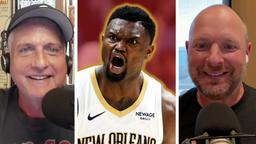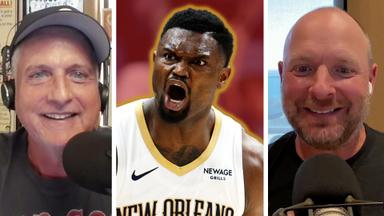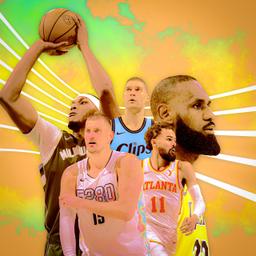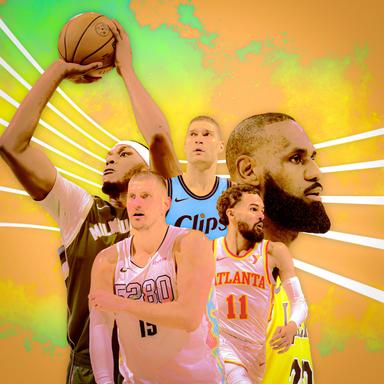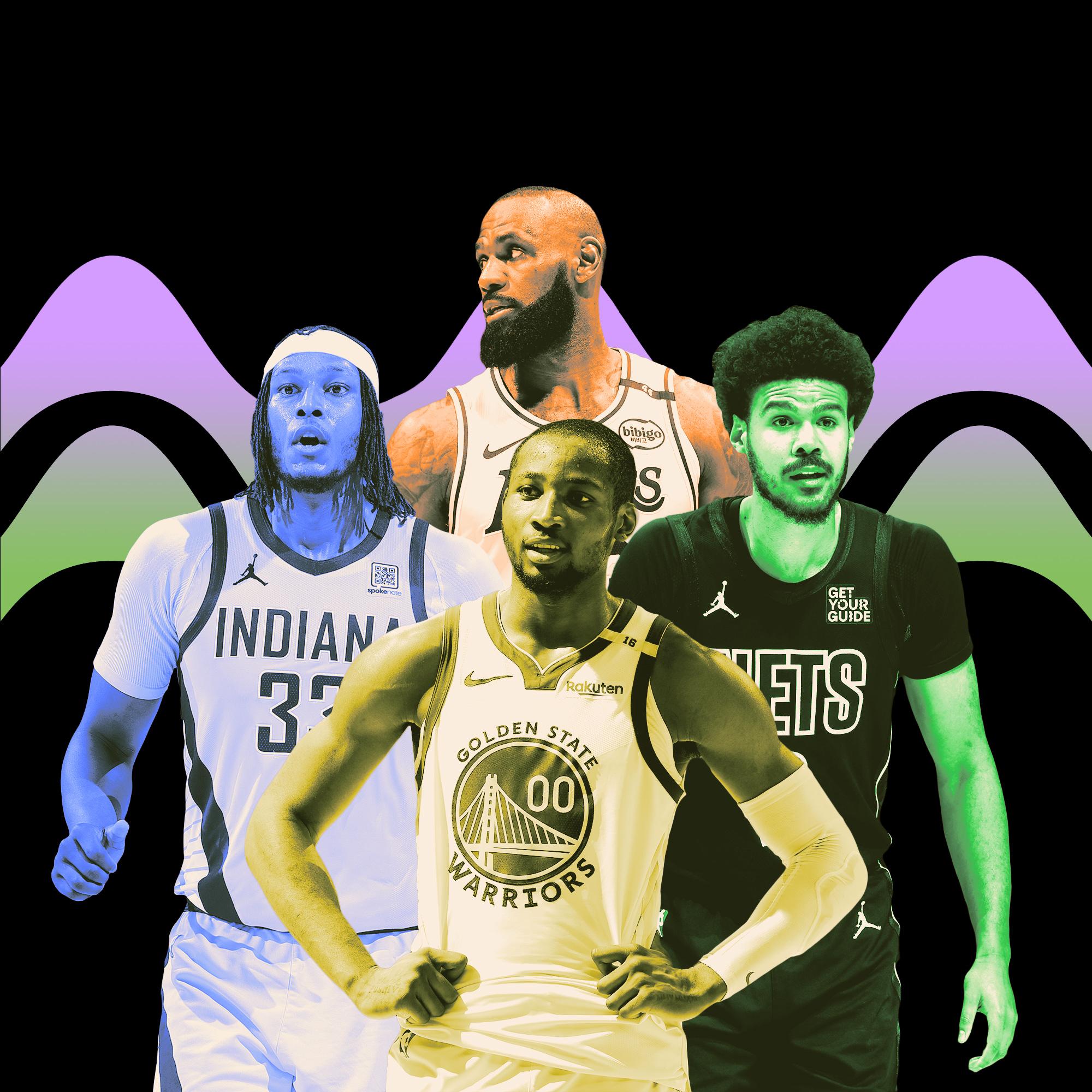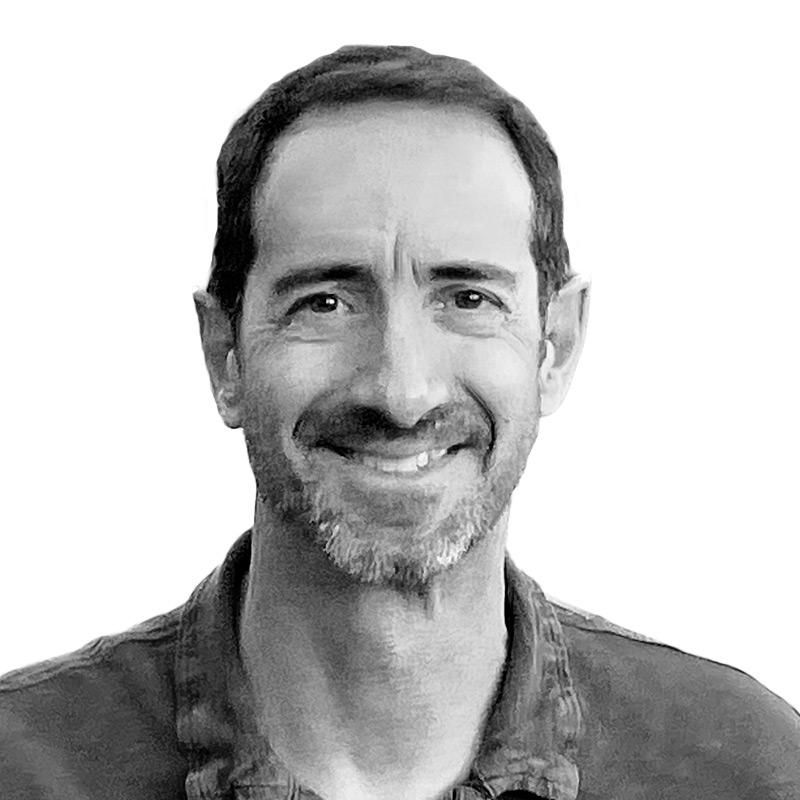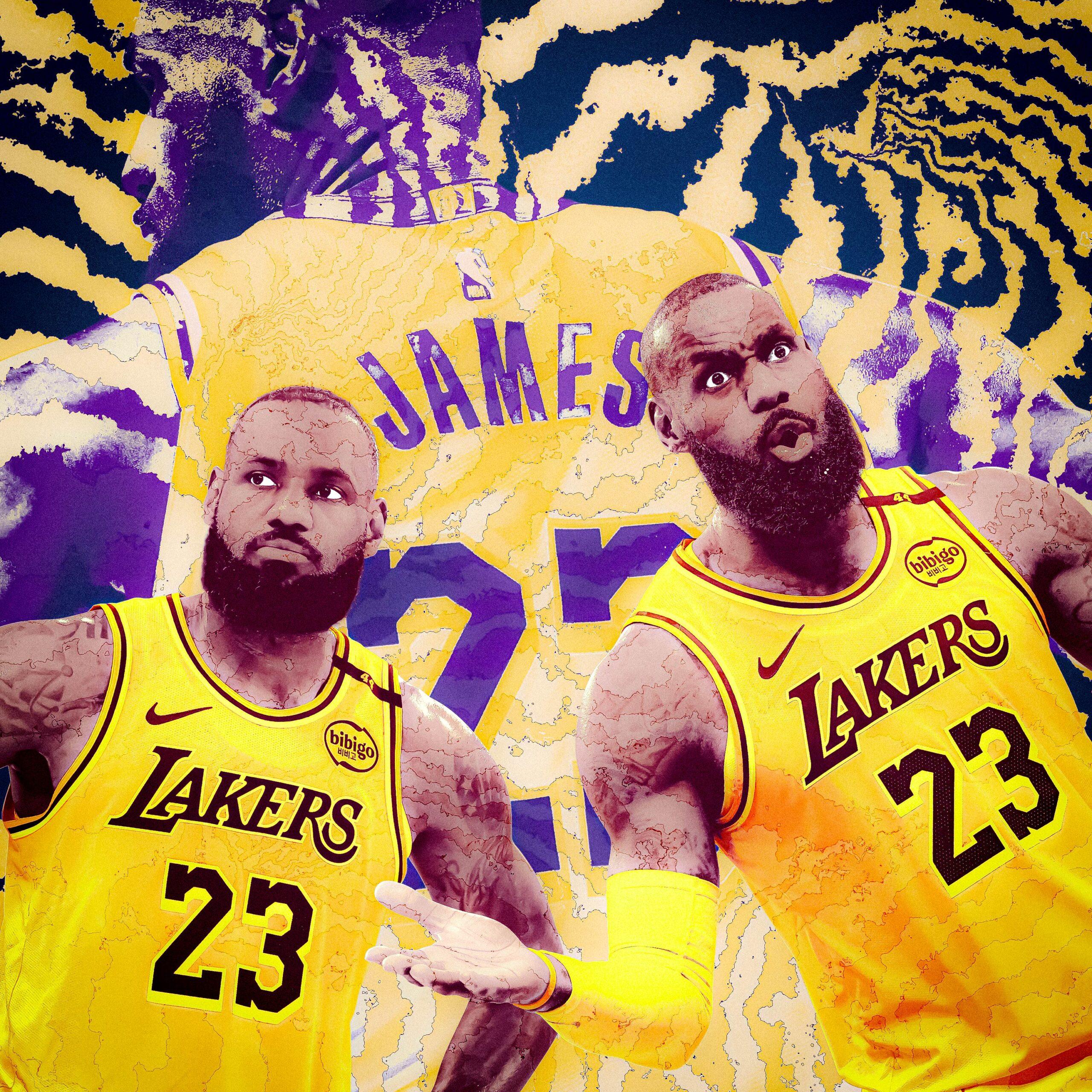
LeBron James has once again hijacked the NBA offseason, turning the summer months into a perpetual news cycle of LeBron-centric questions, curiosities, and rumors—all of which we’ll attempt to unpack in the paragraphs below. If you’re an NBA fan who groans and cringes at our collective, arguably unhealthy LeBron obsession, well, you do not have to read them.
It’s possible that we’ve already spent way too much time and energy and oxygen trying to divine LeBron’s wants and needs and intentions. That the world didn’t need another 1,500 words on the topic. And, well, I did not have to write them.
But let’s review, for a moment, how we got here and why we’re now all captives on this runaway speculation train.
We’re here because eight days ago, LeBron exercised a $52.6 million option to play next season with the Los Angeles Lakers. And because his agent, Rich Paul, promptly issued a (somewhat jarring) statement that not-so-subtly questioned whether James and the Lakers were, in fact, still the right fit for each other.
“LeBron wants to compete for a championship. He knows the Lakers are building for the future,” Paul said. And then, this kicker: “We do want to evaluate what’s best for LeBron at this stage in his life and career.”
Just to be clear:
- James did not have to opt in.
- Paul did not have to issue a statement that sent the debate shows into a frothy frenzy and the virtual trade machines into a meltdown.
- We did not have to be here, collectively wondering and speculating and groaning and cringing—and ultimately, perhaps pointlessly, waiting for a blockbuster trade involving the greatest player of his generation.
You did not have to be reading this. I did not have to be writing this.
The question of where LeBron will play his 23rd NBA season (and beyond) need not be overshadowing the Oklahoma City Thunder’s championship, or the Denver Nuggets’ aggressive attempts to catch them, or the record-setting, seven-team trade (made official on Sunday) that sent Kevin Durant to Houston and certified the Rockets as legitimate contenders in their own right.
The Philadelphia 76ers, after drafting the explosive V.J. Edgecombe, are plotting a quick revival in the East. The Milwaukee Bucks are pushing the boundaries of what “all in” looks like and apparently not trading two-time MVP Giannis Antetokounmpo. The San Antonio Spurs are quietly building a rising power in the West. The Orlando Magic are methodically constructing a new contender in the East.
The Dallas Mavericks, who shocked the world by trading Luka Doncic in February, are now placing their faith in wunderkind Cooper Flagg, who makes his summer league debut this week. The New York Knicks, who shocked the league by firing Tom Thibodeau after making the Eastern Conference finals, are placing their hopes in a new head coach (Mike Brown).
The offseason, officially just a couple weeks old, has already been packed with clever signings, creative trades, and tantalizing transactions of every kind.
And yet the question lingers, the chyrons roll, the headlines blare, the blogs and podcasts demand …
WHERE WILL LEBRON GO?
It’s as if we all got sucked into a wormhole and were spit out in July 2010, or July 2014, or July 2018. Except this time, LeBron is 40 (not 25, not 29, not 33 …) and no longer the best player in the NBA (albeit still elite) and no longer capable of bending the league to his will. And yet, we all must admit, we’re still hopelessly fascinated by what comes next, by where he might land if and when he actually gets traded, and more to the point, what he actually wants right now.
But the truth is, we don’t know anything yet. Nothing has actually happened. No official trade demand, or even a polite request (at least that we know of). No firm indication that James will ask out, or that the Lakers will accommodate him. Nothing. Not even a statement from LeBron himself. Just a kinda-vague, sorta-provocative quote from his agent that seemed to kinda-sorta-maybe hint at an eventual trade desire.
And even that seemed less clear after NBA insider Chris Haynes, reporting for NBA TV last Monday, said Paul told him, “There has been no trade discussions, there have been no trade talks with the Lakers.” Oh. According to Haynes, Paul said James understands the Lakers are now building around the 26-year-old Doncic but that he also wants them to “maximize and prioritize [LeBron’s] timeline.”
So now we’re all left to read the organic, artisanal tea leaves. Does this all amount to a passive-aggressive trade request, one that merits our collective frothing, fretting, and trade-machine binging? Perhaps. But there’s another plausible interpretation here: not a demand, but a lament.
A lament that the Lakers’ roster, despite the fierce one-two punch of Doncic and James, just isn’t good enough to compete with the Thunder or the other greatest powers in the West. A lament that the Lakers’ front office has, once again, failed to acquire the right supporting players around its stars (see the summer of 2021, 2022, 2023, 2024). A lament that the clock is loudly ticking—for LeBron, but not for his employer, which bought itself a fresh 10-year window to contend when the Mavericks gifted Doncic to the Lakers five months ago. (“Just putting the pressure on Rob [Pelinka, the Lakers general manager] like he does every year,” said one rival executive. “Nothing to see here.”)
James just made All-NBA for a remarkable, record-extending 21st time, but he is slowing down. Any season now could be his last. It’s been a half decade since he won his fourth ring, and it’s understandable that he’d want to finish his career on a team that has a legitimate shot at a title. It’s understandable if he doubts he can do that with his current team, especially since that team is now building on a Gen Z timeline.
Still, it’s a strange moment to float a breakup.
James chose L.A. in 2018 for family and business reasons, as well as the allure of the Lakers brand. He (along with Paul) got the Lakers to acquire Anthony Davis. He delivered the franchise’s first title of the post-Kobe era. He’s chosen teammates and coaches. It was just a year ago that the Lakers—with no other incentive to do so—drafted his son Bronny, thus manifesting the basketball fantasy that LeBron had been openly ruminating about for years. Roster missteps aside, the Lakers have generally done right by him.
And if James really, truly wanted a divorce, he could have done the obvious: He could have declined that $52.6 million option and taken a lesser salary with the contender of his choice. He could have joined Nikola Jokic in Denver, or Antetokounmpo in Milwaukee, or Jalen Brunson in New York, or his hometown Cavaliers in Cleveland.
That type of final chapter is not unprecedented. In 2003, Karl Malone—still a force at age 40—accepted a $1.5 million minimum salary, a staggering $18 million reduction, to play alongside Kobe and Shaquille O’Neal in L.A. Fellow Hall of Famer Gary Payton also took a massive pay cut to join them.
James chose the money this summer, as is his right. But it was a choice, and that choice comes with the consequence of surrendering some autonomy. He can lament and nudge and ask his agent to issue passive-aggressive statements, but the reality doesn’t change. That $52.6 million makes it extremely difficult to find a viable trade, assuming he truly wants one. As one rival executive said Sunday, “I think he is stuck in L.A.”
That won’t necessarily stop James or Paul from issuing further confusing statements. It won’t stop the TV debaters from debating, or the chyrons from, er, chyroning, or the rest of us from compulsively following along. The fake trade machines and the LeBron speculation–industrial complex will keep churning away, because deep down, in places you don't talk about at parties, we all want those LeBron James rumors.
For two decades, James has been the singular most compelling figure in the NBA—not always the best (though he was), or the most popular (though he has been), but absolutely the most dominant when it comes to harnessing our awe and our attention, for better or for worse. We now fret about finding a new “face of the league” because the old one refuses to relinquish his grip and because James, perhaps more than any modern star, has always understood there’s more to that fictitious title than just playing basketball at a high level.
All these years later, after all the team-hopping, all the mini-dramas and cryptic tweets, all the bitter separations and happy reunions, all the Finals appearances and all the parades, LeBron James still fascinates and mesmerizes and, yes, sometimes frustrates us. But we’re going to keep watching and wondering and speculating.
LeBron didn’t have to put us all through this again. I didn’t have to write about it. And you didn’t have to read it. But here you are.

